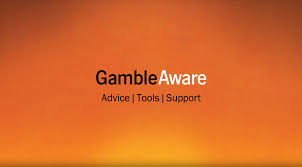Safer Gambling, or Just Safer Optics? Why GambleAware Talks at Punters, Not With Them
Let’s begin with a clarifying point: not all gamblers are helpless wrecks lured into destitution by a slot machine and a voiceover from Ray Winstone
Ed Grimshaw
4/3/20254 min read


Gambling Education Shouldn’t Feel Like Detention
Let’s begin with a clarifying point: not all gamblers are helpless wrecks lured into destitution by a slot machine and a voiceover from Ray Winstone. A fair chunk are rational adults who like a flutter, keep an eye on their bank balance, and would actually quite like some useful, non-patronising education on how to gamble safely—without being treated like a walking cautionary tale.
But GambleAware, the UK’s primary gambling charity, appears to think that anyone who places a tenner on Brentford to beat Bournemouth must immediately be ushered into a digital rehab centre filled with regretful avatars, sombre colours, and helpline numbers. The default tone is one of mild panic—as if everyone who enters the betting arena is one spin away from selling their sofa and borrowing money from a bloke called Daz in a tracksuit.
Education, in GambleAware’s case, means “awareness” in the same way that being shouted at in IKEA raises your awareness of marital breakdown. What punters actually want—what they keep asking for—is clear, consistent, and credible guidance on how to gamble smartly. Not some fog of moralistic messaging that assumes every customer is a cross between Oliver Twist and Pete Doherty.
The Missing Curriculum: Teaching Gambling Like We Teach Driving
If the government were serious about harm reduction, we’d have gambling literacy taught like driver’s ed. Not to infantilise punters, but to empower them. Imagine a GCSE module where you learn about odds inflation, betting margins, sunk cost fallacies, and how cash-out functions are a con—not because you’re a future addict, but because it’s practical knowledge in a country where gambling is as common as watching “Antiques Roadshow” on a Sunday.
Instead, we get GambleAware’s website, where every page feels like you’ve been diagnosed with a chronic condition and the leaflets are already being handed to your relatives. The message is rarely “here’s how to play smart”; it’s “you’re probably in trouble, so here’s a chatbot and a confusing risk scale.”
What about celebrating resilient, responsible punters? What about learning from the millions who do it without falling into despair? You’d think that crowd doesn’t exist, judging by the resources on offer.
Real Education, Not Helpline Bingo
To be fair, GambleAware’s brief isn’t an easy one. It’s a charity funded, somewhat farcically, by voluntary donations from the very industry it's meant to keep in check. But when "education" consists largely of leaflets, pop-up warnings, and the digital equivalent of a laminated guilt-trip, one wonders if the goal is actually to educate—or simply to deflect criticism.
Gambling education, if it were serious, would involve:
Transparent info about betting mechanics – Why do bookies always seem to know the result before you do? Because maths. Explain it.
Psychological traps and how to avoid them – Like chasing losses, overconfidence bias, or betting drunk (which, incidentally, is how most of Britain seems to handle Sunday evenings).
Bankroll management advice that isn’t written like a GCSE textbook – You don’t need to gamify budgeting, just don’t make it feel like a sermon from the Archbishop of Canterbury.
Case studies that aren't all horror stories – Sometimes, it's okay to show someone not ending up in despair. Otherwise, you just make people feel like failures for placing a bet at all.
Instead, what we get is a constant stream of “warning signs” and phone numbers. Which is fine if you’re in crisis. But most gamblers aren’t. They’re just looking for actual tips on how not to become one of the statistics.
Don’t Blame the Punter—Blame the Silence
What GambleAware seems to forget is that most British gamblers aren’t in denial—they're in limbo. They're aware of the risks but get almost nothing in the way of helpful, evidence-based strategies that don’t drip with condescension. They’re stuck between the smug denial of the betting firms (“It’s just entertainment!”) and the fatalistic hand-wringing of the charities (“You’re probably doomed!”).
What’s missing is respect. Respect for the punter’s intelligence. Respect for personal responsibility without assuming that means moral perfection. And respect for the fact that most people who enjoy betting aren’t trying to ruin their lives—they're trying to have a bit of fun without being told they need an intervention.
You wouldn't go to a wine tasting and be handed an AA leaflet before the Merlot. Yet in gambling, the assumption is always: you’re a problem waiting to happen.
Let’s Educate Like Adults, Not Preach Like Vicars
The solution? Stop the sermons. Start the schooling. Give people tools, not tissues. Educate punters the same way you’d educate investors, or poker players, or anyone engaging in risk for potential reward. Teach them about odds, house edge, behavioural traps, and how the industry works—not so they feel guilty, but so they feel informed.
Because if all you offer is therapy and stigma, don’t be surprised when people quietly opt out. Or worse, when they spiral in silence because they don’t want to be seen as yet another “victim.”
Punters don’t need pity. They need respect. They need to be treated not as ticking time bombs, but as capable humans making conscious choices in a landscape designed to confuse them.
Until that happens, GambleAware will continue to be less a beacon of education and more a faintly worried aunt clutching a leaflet, asking if you’re “gambling again, dear.”
And that’s no good to anyone—least of all the people who actually want to do it safely.
